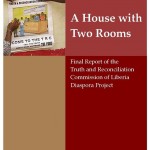Take Down This Wall
With the twentieth anniversary of the tearing down of the Berlin Wall yesterday, I have been reflecting a lot on divides. I was lucky enough to spend a year working in Germany, from August 1988 to May 1989, in Cologne for the year between college and law school. And, although it killed me not to get back on a plane to Berlin in November 1989 to experience that historic moment of the wall coming down — I was a first year law student at the time and too panicked to miss class! — I was always grateful that I lived in divided Germany so that I could experience it as it was. I visited Berlin three times during my year, seeing the Wall, Checkpoint Charlie, the Brandenberg Gate from behind the wall. It was nerve-wracking to take a train through East Germany to get to Berlin and somewhat surreal to visit the divided city. In the summer of 1989, just as things were starting to open up, I visited Prague and Budapest. Prague was gorgeous but still in the throes of communism – Vaclav Havel was still just a playwright – and I remember being struck that you could not find fresh fruit. Budapest was already quite different with more open markets and more goods. It was not quite the West, but it was not quite fully Communist either. I returned to go to law school and the Wall came down while I watched.

 As Congress enters the final stretch in pushing forward a health care reform bill, I have been struck by the fact that during the ongoing debate very few people seem to pose the question of whether access to health care constitutes a human right. Yet, in many countries around the world, this perspective forms the starting point of their national debates—and this consensus inevitably directs their public policy on universal health care.
As Congress enters the final stretch in pushing forward a health care reform bill, I have been struck by the fact that during the ongoing debate very few people seem to pose the question of whether access to health care constitutes a human right. Yet, in many countries around the world, this perspective forms the starting point of their national debates—and this consensus inevitably directs their public policy on universal health care. 